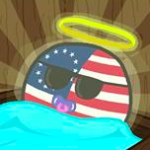Ecuador:
http://www.american....TED/ecuador.htm
Quote
numbered in the thousands have been reduced to the hundreds as a
result of the pollution generated by oil exploration and other
assaults. Water contamination has led to increased risks of
cancer, abortion, dermatitis, fungal infection, headaches, and
nausea. Their drinking, bathing, and fishing water contain
toxins much higher than the safety limits set by the U.S.
Environmental Protection Agency. Unlined waste pits provide a
major source of pollution. They contain a toxic mixture created
by the oil production and separation process. Today,
environmental regulations require these toxic by-products to be
injected deep underground. However, the Ecuadorean Union of
Popular Health Promoters has found that Petroecuador does not
follow these guidelines and continues to release the toxic wastes
directly into the environment.
The oil companies that drilled in the rain forest were
responsible for "felling thousands of acres of trees, dynamiting
the earth, spilling vast amounts of oil, destroying habitats, and
fouling rivers."3 This destruction has limited resources
available to the tribes living in the Amazon (see BRAZIL case).
Fish have died from water pollution and the game the tribes once
hunted have retreated deeper into the jungle as a result of the
deforestation. The Rainforest Action Network found that Texaco
alone spilled 17 million gallons of crude oil, abandoned hundreds
of unlined toxic waste ponds, and constructed oil roads that
opened more than 2.5 million acres of the forest to colonization.
Ecuador's rain forests are being cut down by oil companies and
settlers at a rate of approximately 340,000 hectares a year. The
wood is used for construction, roads, fuel, and furniture.
Nigeria:
http://en.wikipedia....the_Niger_Delta
Quote
http://en.wikipedia....ing_and_killing
Quote
The documentary revealed for the first time that Chevron played a role in the killing of two Nigerian villagers by facilitating an attack by the Nigerian Navy and Mobile Police (MOPOL).
In an interview with Democracy Now!, a Chevron official acknowledged that, on May 28, 1998, the company transported Nigerian soldiers to their Parabe oil platform and barge in the Niger Delta, which dozens of community activists had occupied. The protestors were demanding that Chevron contribute more to the development of the impoverished oil region where they live. In the interview, Chevron spokesperson Sola Omole was asked:
Q: Who took them in, on Thursday morning, the Mobile Police, the Navy?
A: We did. We did. Chevron did. We took them there.
Q: By how?
A: Helicopters, yes, we took them in.
Q: Who authorized the call for the military to come in?
A: That's Chevron's management.
...
"It is very clear that Chevron, just like Shell, uses the military to protect its oil activities. They drill and they kill," Nigerian environmental attorney Oronto Douglas told Democracy Now!.
There are so many more, but Ecuador and Nigeria are the 2 most covered by the media.

 Help
Help















